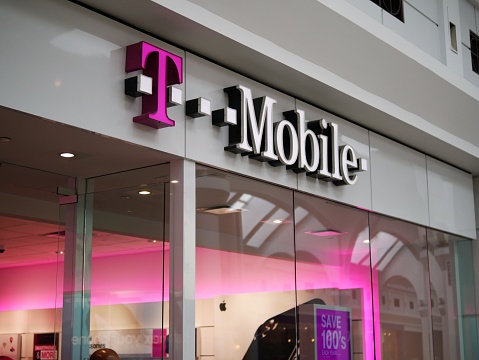T-Mobile and Sprint have just moved one step closer to completing their highly publicized merger. The Justice Department approved the $26 billion deal on Friday, allowing T- Mobile to absorb Sprint. This combination would create a formidable rival to AT&T and Verizon, as well as potentially alter the whole wireless industry.
From The New York Times:
The Justice Department gave its approval after the two companies overcame a final obstacle by agreeing to sell off parts of their businesses to pay-TV operator Dish to create a potential fourth major player in the wireless industry.
Dish would acquire wireless spectrum and Sprint’s prepaid phone business, Boost Mobile. According to Reuters, “Dish will get access to the combined firm’s network for seven years while it builds out its own 5G network.” All of this would make Dish America’s fourth-largest wireless carrier.
Also from The New York Times:
T-Mobile and Sprint have [also] made [a] pledge to build out 5G technology, which brings faster-than-broadband speeds through the air, a centerpiece of their argument for why the merger should be approved. The companies have said they would have a more difficult time making advances in that realm as separate businesses.
However, we can expect the deal to generate substantial backlash. Consumer advocates have long argued that the merger would raise wireless bills and make the industry more monopolistic. Gigi Sohn, a former counselor to Tom Wheeler when he was head of the Federal Communications Commission, told NBC News:
“Given incontrovertible evidence of higher prices and reduced competition, Assistant Attorney General Makan Delrahim should have blocked this merger.”
What’s especially notable is that both Sprint and T-Mobile have utilized consumer-friendly policies in the past, allowing family plans, letting consumers keep their devices if they switch networks, and doing away with two-year contracts. Now, Sohn believes that the new merged company would be under more pressure to compete with the higher-priced competitors.
NPR reports that the deal might hit a roadblock in the near future. “Attorneys general of 14 states and the District of Columbia have sued to stop the deal, arguing it will increase consumer wireless costs by at least $4.5 billion a year.”
“Our antitrust laws protect Americans against the concentration of economic power in the hands of just a few. Choice is not real if competition is not meaningful,” said California attorney general Xavier Becerra in USA Today.



